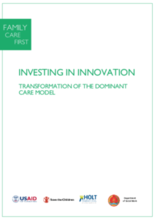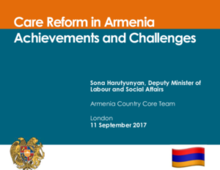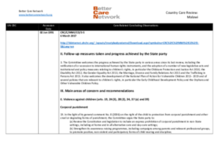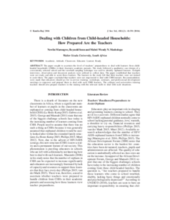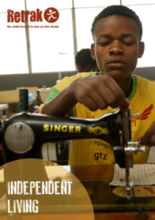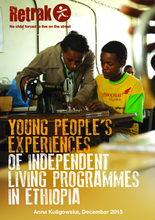Displaying 31 - 40 of 87
This study and documentation of existing reintegration and alternative family care services in Cambodia was designed to build the capacity of existing service providers to take emerging good practice to scale as an increased number of residential care institutions transition.
Family Care First (FCF) supported the study and documentation of existing reintegration and alternative family care services provided by seven implementing partners in Cambodia. This brief includes an outline of key findings of the study and concludes with recommendations based on those findings.
The purpose of this study was to describe the receipt of independent living services of youth who were formerly in care and who are currently living independently, while also looking at the skills and resources of youth who are currently in foster care in the US.
This presentation from the Deputy Minister of Labour and Social Affairs of Armenia provides an overview of the demographic data of Armenia and offers a thorough review of the situation of children's care, and care reform efforts, in Armenia.
This study assesses the impact of of official government intervention programmes in managing child vulnerability and Child Headed Households (CHHs) in South Africa.
This systematic review draws from previous research to provide a broad picture of the challenges of adolescent females in child-headed households in South Africa.
This country care review includes the care-related Concluding Observations adopted by the Committee on the Rights of the Child.
This paper is the investigation of the level of teachers’ preparedness and their ability to deal with learners from child headed households (CHHs) in their (learners) academic pursuits.
Retrak has released a literature review on independent living programmes in an effort to understand the needs of young people coming of age on the streets.
This study sought to inform improvements in service delivery of Retrak’s Independent Living programme by listening to and documenting the voices of participants.

